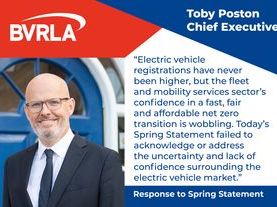The BVRLA is urging companies to review their fleet policies now as a continued shortage of reliable data threatens to disrupt the move to a new VED and Company Car Tax (CCT) regime in April.
VED and Company Car Tax (CCT) for newly registered vehicles will use CO2 figures based on the more accurate WLTP standard from 1 and 6 April 2020 respectively. Many vehicle manufacturers are struggling to provide WLTP data for their cars, with the result that BVRLA members currently only have accurate CO2, electric mileage range or RDE2 compliance (latest NOx emissions standard) information for around 80% of base (pre-option) models.
With average lead times for cars at around 9-12 weeks from ordering, this data gap is hindering the leasing sector’s ability to provide accurate quotes on many different vehicles and their various configurations and options.
“The introduction of WLTP-based motoring taxes is adding yet another layer of complexity and confusion to a fleet sector that is already having to cope with a deluge of new automotive technology and local authority air quality measures,” said BVRLA Chief Executive, Gerry Keaney.
“The BVRLA and its members are working with OEMs and third-party data providers to bridge this gap, but in the meantime, we would recommend customers consult with their lease providers to assess the impact on their fleet policies and procurement.”
The BVRLA has contacted the SMMT, which represents vehicle manufacturers, to offer its support in addressing the WLTP data shortage. It is also working with HMRC on its forthcoming WLTP communications plan.
-ENDS-
Notes to editors:




